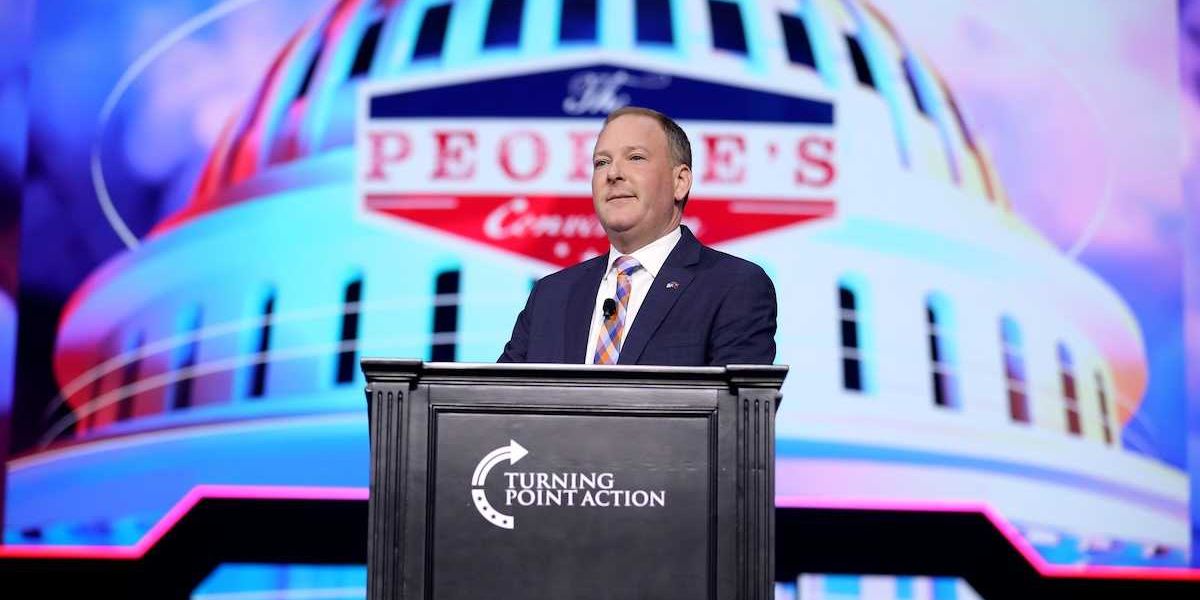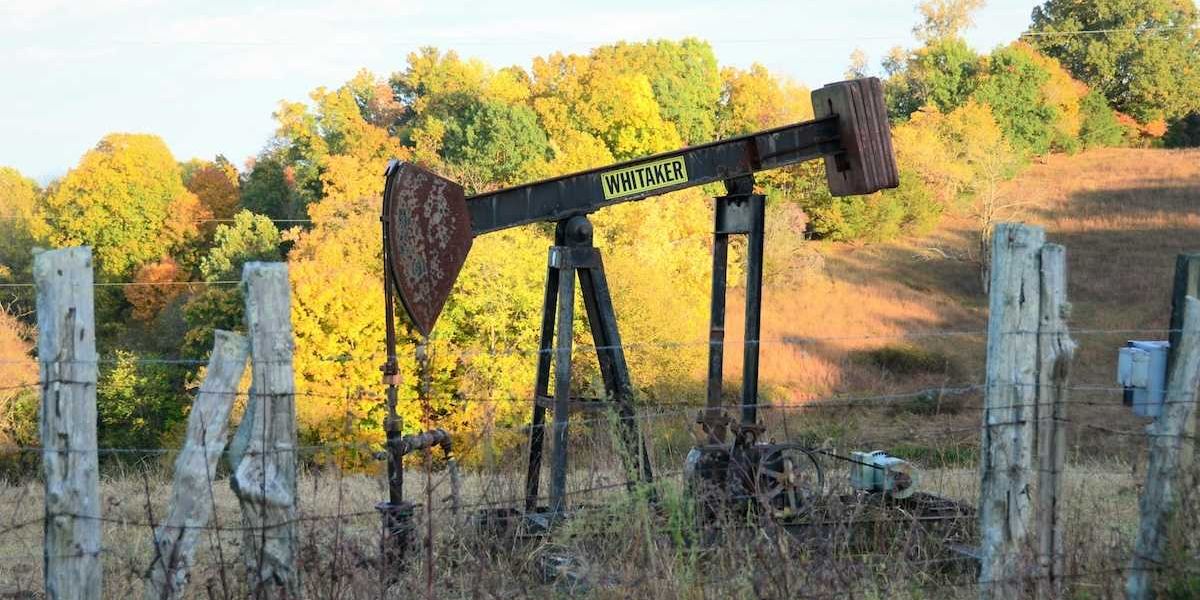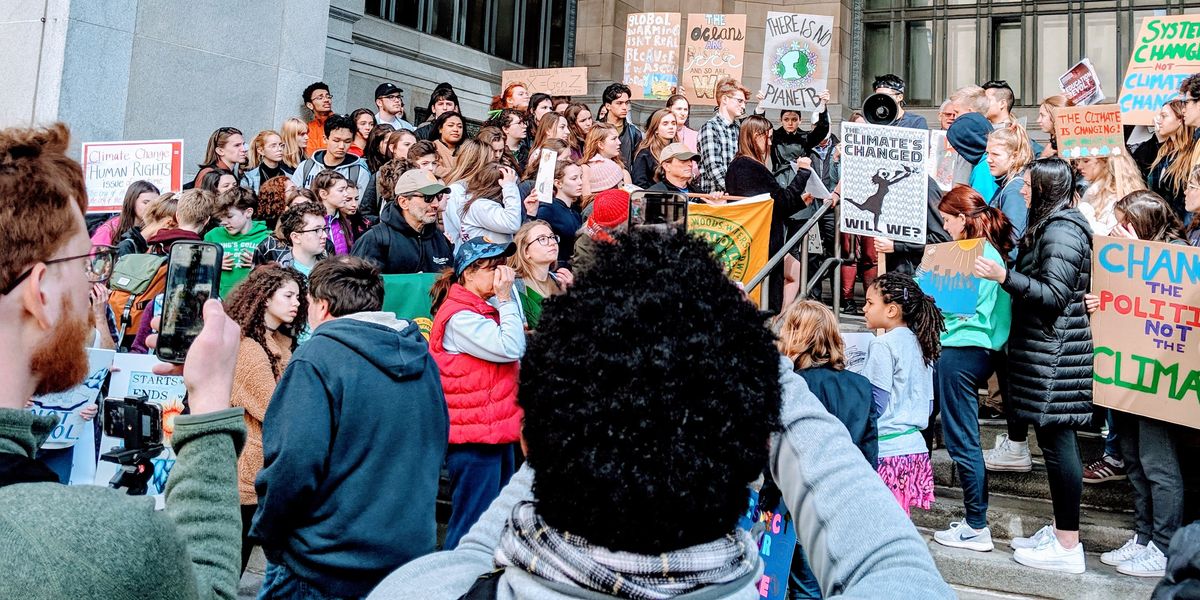
Delays in joining the RGGI regional climate program means excess ER visits and child illness in Pennsylvania
Up to 128 premature deaths from air pollution could have been prevented if the state had entered the program in 2022 as planned.
PITTSBURGH — On November 1, a Pennsylvania Commonwealth Court ruled against Pennsylvania joining a Regional Greenhouse Gas Initiative (RGGI), a program that limits climate-warming carbon dioxide emissions from power plants.
The ruling, which is expected to be appealed, marks the latest hurdle in nearly two years of legal delays for the project, which was voted on by the state’s Environmental Quality Board and signed into law through an executive order by former Pennsylvania Governor Tom Wolf in 2021.
RGGI was established in 2005 and has already been implemented in Connecticut, Delaware, Maine, Maryland, Massachusetts, New Hampshire, New Jersey, New York, Rhode Island, Vermont and Virginia. These states have cut their carbon emissions from electric generation by 47%— which is 90% faster than the rest of the country, according to a 2019 study.
Opponents, which include state Republicans and industry groups, say the decision to enter RGGI should be made by the legislature rather than by an executive order. In the wake of the most recent court ruling, many Republican lawmakers applauded the court’s decision, claiming that RGGI would cost the state jobs and raise energy bills for consumers.
“RGGI is a job killer and a tax that would have inevitably been passed along to consumers, in addition to being a policy that would end Pennsylvania’s role as a major energy exporter,” Republican state Representative Jim Struzzi, who represents Indiana County in southwestern Pennsylvania, said in a statement.
Much has been written about the estimated $1 billion in revenue that Pennsylvania has missed out on by delaying its entry into RGGI. But since tackling climate-warming emissions also reduces air toxics, the delay has also created substantial public health costs, including up to 128 premature deaths from air pollution that could have been prevented through the program, 94 hospitalizations from respiratory and cardiovascular emergencies that could have been prevented, and 9,060 asthma attacks in children that could have been avoided, based on projections from the Pennsylvania Department of Environmental Protection.
“Pennsylvania is missing out on both these health benefits, and also the economic savings from avoidance of these cases, which can be very costly,” Frederica Perrera, a professor of environmental health sciences at Columbia University, told Environmental Health News (EHN).
Extra public health costs
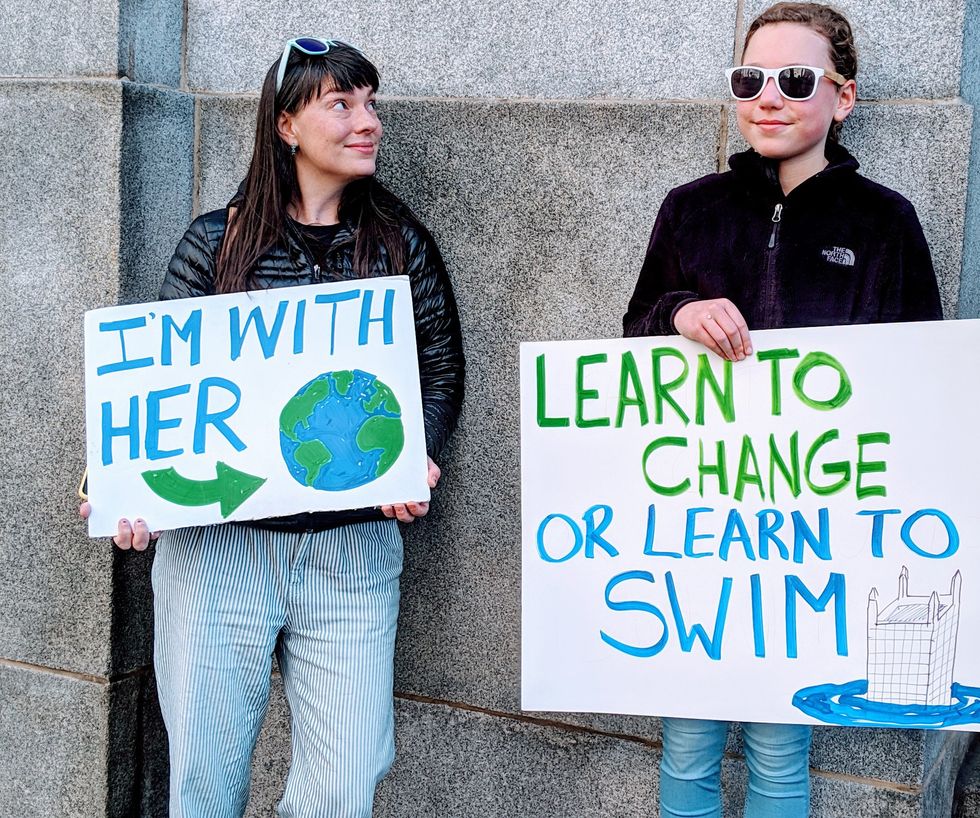
RGGI-participating states have cut their carbon emissions from electric generation by 47%— which is 90% faster than the rest of the country, according to a 2019 study.
Credit: Kristina Marusic for Environmental Health News
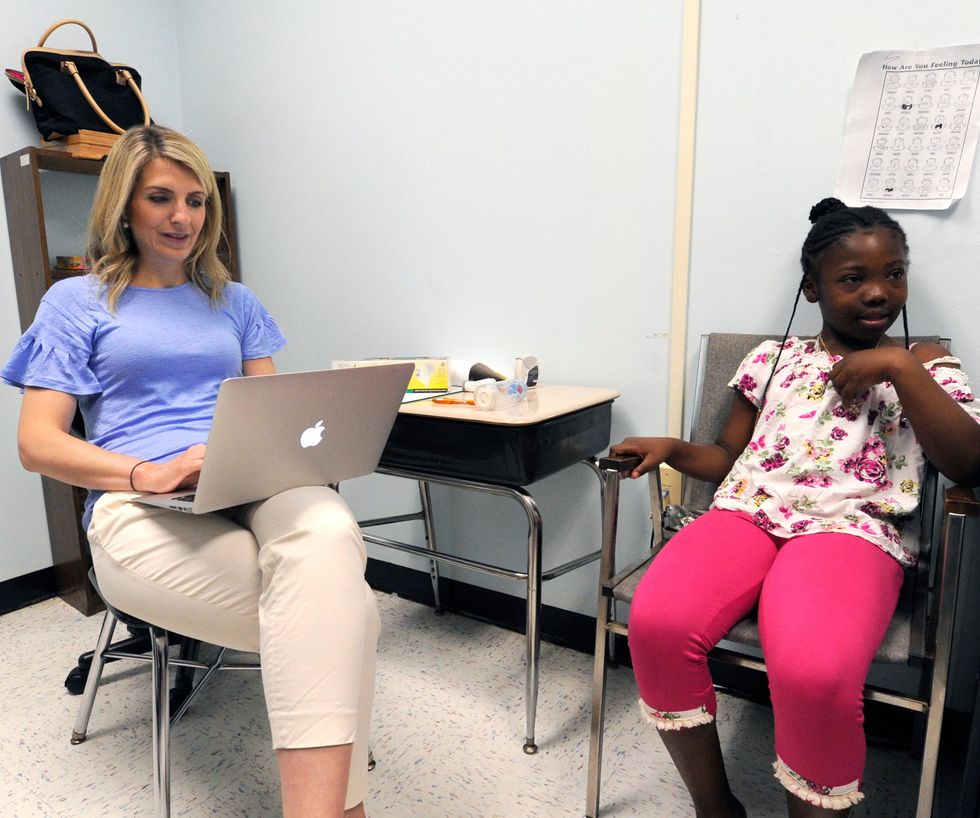
Asthma clinic in Clairton, Pa. The PA DEP estimated that by 2030, Pennsylvania's participation in RGGI would result in 45,299 fewer asthma exacerbations in kids.
Credit: Connor Mulvaney for Environmental Health News
RGGI only regulates carbon dioxide emissions from power plants, but lowering those emissions also lowers emissions of other air pollutants that are harmful to human health, including sulfur oxide, nitrogen oxides and fine particulate matter (PM2.5).
In 2020, the Pennsylvania Department of Environmental Protection (PA DEP) estimated that by 2030, Pennsylvania's participation in RGGI would result in:
- 45,299 fewer asthma exacerbations in kids ages 6-18;
- 1,000+ fewer cases of acute bronchitis in kids ages 8-12;
- 350+ fewer hospital admissions for cardiovascular and respiratory issues combined;
- 282-639 prevented premature deaths;
- Public health benefits totaling up to $6.3 billion
By breaking those benefits down by year, we can estimate that delaying Pennsylvania’s entry into the program by two years has caused:
- 84 preventable asthma exacerbations in kids ages 6-18;
- 253 preventable cases of acute bronchitis in kids ages 8-12;
- 117 preventable hospital admissions for cardiovascular and respiratory issues combined
- 160 preventable premature deaths
- Avoidable public health costs of up to $1.5 billion
These are likely underestimates since they don’t include other public health costs associated with higher levels of air pollution such as autism spectrum disorder, cancer and low birth weight.
Perrera led a 2020 study that found pollution reductions in RGGI states resulted in an estimated 537 fewer cases of child asthma, 112 fewer preterm births, 98 fewer cases of autism spectrum disorder and 56 fewer cases of low birthweight from 2009 to 2014, creating economic savings of between $191 million to $350 million.
“The economic valuation is very likely an underestimate, because many of the articles we consulted to get the cost of illnesses only looked at short term costs,” Perrera explained. “For preterm birth, for example, we didn’t include the cost of the possibility of lost IQ points, which can have a significant value in terms of reduced lifetime earnings.”
Air pollution travels, so states and counties that neighbor RGGI states also benefit from the program. Allegheny County, which encompasses Pittsburgh, saved up to $1 million in cumulative health benefits for children from 2009-2014 as a result of RGGI in surrounding states, according to Perera’s 2020 study.
Conversely, a separate 2020 study found that Pennsylvania has the most premature deaths caused by air pollution per capita of any state, and that air pollution generated in Pennsylvania was also responsible for 306 premature deaths in Maryland, 715 in New Jersey, and 657 in New York.
Ashleigh Deemer, director of PennEnvironment, an environmental advocacy group that has worked to advance RGGI in the state, noted that there are additional public health costs associated with unabated climate change including extreme heat, flooding and insect-borne diseases. She also pointed out that Pennsylvania ranks 50th in the nation for percent growth in total renewable energy generation from solar, wind and geothermal sources, and that funds from RGGI can be used to finance such projects.
“These numbers all make a really strong case for RGGI, but it’s important to remember that these numbers are all people,” Deemer told EHN. “Rushing a child to the ER with an uncontrolled asthma attack is a parents’ worst nightmare. I lost my dad to COPD, and I’m not the only one. There are lots of people dying of respiratory disease in Pennsylvania, and if there’s a policy that could prevent these deaths, I think we should do it.”
Why is there opposition to RGGI?
Republican state lawmakers and industry groups have spent years fighting RGGI in court, claiming that collecting revenue for carbon emissions qualifies as a tax and that only the state legislature can decide to levy taxes, so implementing the program by executive order was unlawful. The case has been making its way through the court system, and must now be appealed in the state Supreme Court within 30 days of this month’s court ruling.
Research on the economic impacts of RGGI in states that have already joined the program suggest that the program has created 45,000 job-years of work across the region since its launch (a job-year equals one year’s worth of full-time employment for one person) by funding clean energy projects, and shows that RGGI state economies have grown 31% faster than non-RGGI states. Research also shows that RGGI has actually lowered energy bills for consumers in RGGI states.
According to the Energy & Policy Institute, a watchdog group that monitors the fossil fuel industry, many of the organizations and individuals fighting RGGI in Pennsylvania have ties to conservative think tanks that receive funding from fossil fuel companies and actively promote climate change denial. In 2022, fossil fuel interests spent at least $1.8 million lobbying Pennsylvania lawmakers, and the American Petroleum Institute reported spending more money on lobbying in Pennsylvania than in any other state, according to the Public Accountability Initiative.

Western Pennsylvania has a particular role to play in the state’s energy policies because it’s where most of the state’s fossil fuel extraction occurs. A recent report from the campaign finance watchdog groups F Minus and LittleSis found that Pittsburgh has the most “extreme embrace” of fossil fuel lobbyists of any large American city because dozens of the city’s governmental, educational, cultural and environmental organizations work with lobbying firms that also work with fossil fuel companies.
“The fossil fuel industry has a really strong voice in [Pennsylvania politics],” Deemer said, noting that she spoke with Republican lawmakers in Maryland who were excited to discuss all the benefits of RGGI, and how that was a stark contrast to the wall of opposition RGGI has faced from Republicans and even some Democrats in Pennsylvania. “Nonprofit environmental health groups are doing everything we can to bring constituents to Harrisburg to speak with legislators about this, but it’s really hard to match campaign contributions and lobbying dollars spent.”
Opponents of RGGI, including industry groups like the Power PA Jobs Alliance, are urging Governor Josh Shapiro not to appeal the recent court ruling, and instead find an alternative program aimed at curbing greenhouse gasses, as was hinted at in a recent report from Gov. Shapiro’s RGGI working group, which did not endorse RGGI.
Environmental advocacy groups including PennFuture, Clean Air Council, Sierra Club, the Environmental Defense Fund and the Natural Resources Defense Council are urging the governor to appeal the ruling.
"The Shapiro Administration is carefully reviewing the Commonwealth Court’s decision as we evaluate next steps,” Manuel Bonder, a spokesperson for the Shapiro administration, told EHN in a statement. “This decision is solely focused on the narrow question of whether this policy put in place by the prior administration constitutes a tax or a fee. Governor Shapiro remains focused on addressing climate change, reducing emissions, and protecting public health while creating jobs and protecting consumers."

